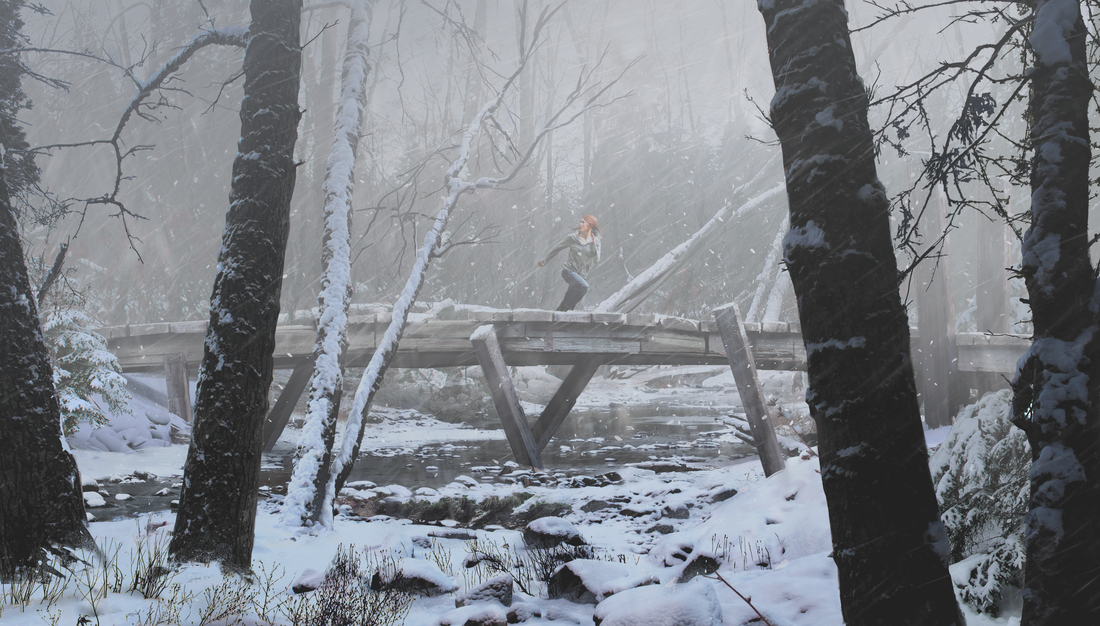Some of the best media of our time has been developed in exactly the way Dr. Burton described of turning back and seeing things from a new perspective, then changing it and expanding it to improve on it until it's great. Pixar has meetings every morning where they go over the material they made the day before and hash out every single detail, changing anything and everything they can find to change. Naughty Dog, the development team behind my favorite video game, The Last of Us, also famously iterated on ideas incessantly right up to the day they shipped the game out. Neil Druckmann, the game's creative director, even went so far as to say, "fail as much as you can early on, because all of these failures lead you to better answers."
 |
| Early concept art from The Last of Us, a game that changed drastically over the course of its creation (image source theverge.com) |
I was lucky enough to go through this very process last semester in a Shakespeare class Dr. Burton taught. I tell the whole story of my paper here, but basically I had the idea to connect Shakespeare's journey to legitimize English-language drama in 17th century England to the struggle of turning video games into a culturally legitimate art form, but I didn't really know how to pin it down. Through social discovery and proof and a lot of help from everyone from my wife to recognized game theorists and authors, I created something far beyond what I ever imagined it would be, and I'm presenting the paper that resulted out of all that to the Rocky Mountain Modern Language Association Conference next week.
After getting the paper accepted, I've kept circling back to the ideas I presented there, and I've kept talking and reading and researching and iterating on it. I imagine the paper will never really be done.
That's the beauty of the digital age--things to have to "be done." We can log the process, keep a memory of where we've been, and ideas don't have to be lost. If we use it right, the internet is the great defender of knowledge and intellect, not the great destroyer we so often make it out to be.

I love your last sentence here because it's so true. We often call out the internet for a lot of fluff or bias or just down right false info. But this process you've described and tested with your Shakespeare and video gaming paper shows that a lot of great things can come from the internet too. Not just high and mightly scholarly papers, but really interesting academic writing that takes on new avenues. And we have chances to defend these ideas through the editing process, as well as in comments or further posts on the ideas when we get feedback from the world.
ReplyDeleteI agree! I think the wonderful thing about the digital age is that there is room for projects and ideas and creations and every state, whether they are done or not. It also creates room for everyone to participate, as you could find your niche with video games! It's interesting to think about how the internet could really change the process by which research is done. Not just in the sense that there is more information available, but there are more voices to contribute.
ReplyDelete